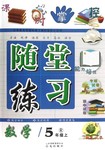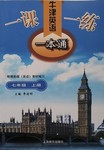题目内容
阅读理解
American parents usually think that their children should not have more pocket money than the children with whom he regularly connects, even if they are wealthier. But neither are children expected to compare with the richer if a large family, heavy responsibility (责任) or other conditions make it necessary to give a child less spending money than is customary (惯例) in the neighbourhood.
Whatever the pocket money is, its entire use is not con-trolled by the parents, because a child learns to use money correctly only through dealing with it himself. If a seven-year-old child get a quarter as a week pocket money and is made to put it all in his piggy bank to save it up, he gets no idea what the real use for the money is. He gets the shiny coins and they soon disappear. The idea of a bank account (账号) is too early for so small a child, although he can be made to understand and enjoy saving his coins—not all of them, only a part of what he receives—to buy something he especially wants. By the time he is eight he is old enough to take part in the opening of his own saving account, parents may take him to the bank, open a saving account for him, and encourage him to put a certain quantity of any checks he receives as gifts into the bank and watch his bank savings grow as entry by entry (存入) is made. He will be saving, earning, and spending suitable quantities all along in order to learn how to manage money and to keep him in a favourable position with his friends. The boy who can't join his fellows in a sweet shop once in a while, because he has to save every cent he gets or earns for some big unknown projects his parents have chosen for him, is a sorry child.
1.What do you think a piggy bank is?
[ ]
A.It is a kind of bank run by children.
B.It is something in the shape of a pig for saving coins.
C.It is a certain place in which pigs are raised.
D.It is a bank whose building looks like a pig.
2.Which of the following statements is true?
[ ]
A.Most of the rich people in America give children much pocket money.
B.American children usually have their bank accounts until they are eight.
C.American parents seldom care for their children's spend-ing money.
D.American children begin to learn how to manage money when very young.
3.Suppose an 8-year-old child received 10 dollars as his birthday gift, he may probably ________.
[ ]
A.spend the money on the things he wants
B.compare the gift with that of his friend
C.have most of it saved in the bank
D.put all the money in his piggy bank
4.The writer think the boy is a sorry one if he saves every cent he gets or earns because ________.
[ ]
A.he can not manage his money and is kept in an unfavourable position
B.he Can not join the fellows in a sweet shop once in a while
C.he can not learn the use of money through spending it himself
D.he can not have any other choice but save, earn or spend money

 开心蛙状元作业系列答案
开心蛙状元作业系列答案 课时掌控随堂练习系列答案
课时掌控随堂练习系列答案 一课一练一本通系列答案
一课一练一本通系列答案 浙江之星学业水平测试系列答案
浙江之星学业水平测试系列答案
| |||||||||||||||||||||||||||||||||||||||||||||||||||||||||||